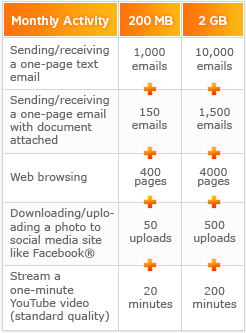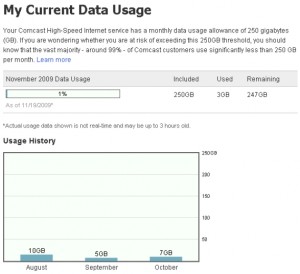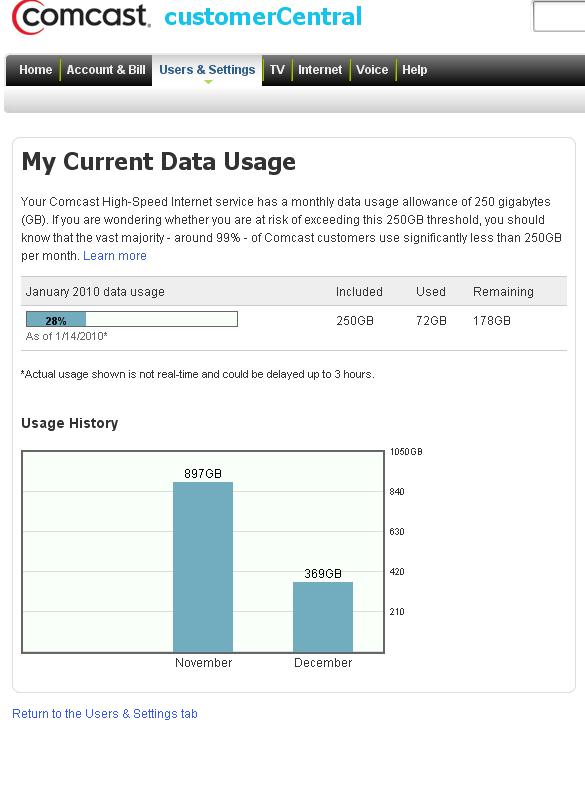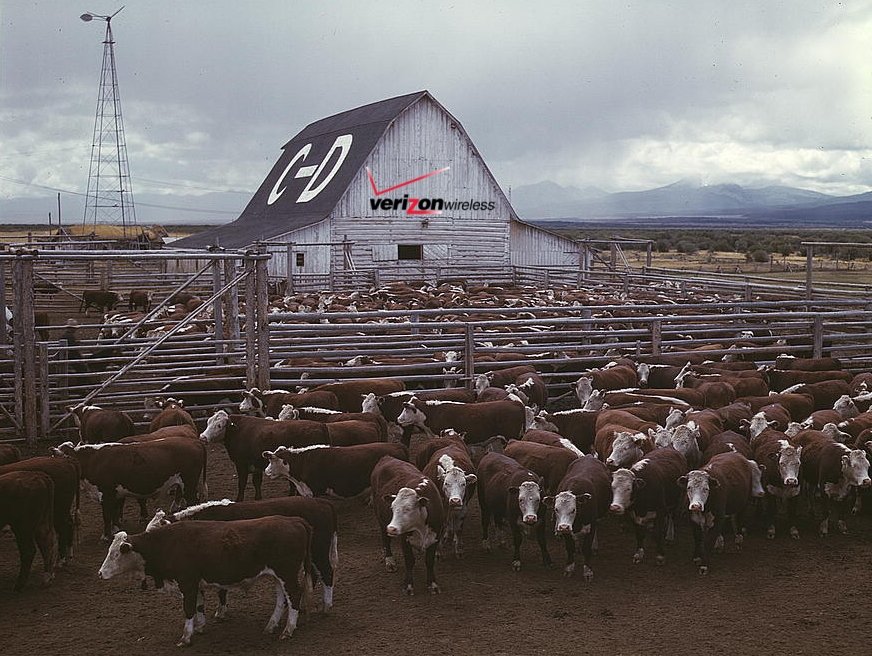 AT&T’s days of unlimited wireless data plans for smartphone customers officially end June 7th when the company launches new wireless data plans that all come with usage caps attached:
AT&T’s days of unlimited wireless data plans for smartphone customers officially end June 7th when the company launches new wireless data plans that all come with usage caps attached:
- DataPlus $15 a month and limited to 200 megabytes of data. If you exceed it, your overlimit penalty is $15, good for an additional 200 megabytes.
- DataPro $25 a month gets you just 2 gigabytes of data. The overlimit penalty for those exceeding it is $10 which buys an additional 1 gigabyte of usage.
AT&T Smartphone customers will also be able to add tethering under the $25 DataPro plan for an extra $20 per month, with DataPro’s usage allowance applied.
Current AT&T customers can remain on their current unlimited Smartphone data plan indefinitely, even if they change or upgrade phones according to AT&T spokesman Mark Siegel. That concession probably helps AT&T preserve anticipated demand for next week’s new iPhone launch. Without it, customer demand could be tempered by the realization a phone upgrade could cost you your $29.99 unlimited usage plan. If you were considering getting an AT&T phone with unlimited data, you have until June 6th to sign up for service under that plan. After that date, you’re out of luck indefinitely.
AT&T is promoting the end of unlimited wireless broadband as a benefit to customers, claiming that 98 percent of its Smartphone customers use on average less than 2GB of data per month. But that represents today’s usage. AT&T’s decision to eliminate an unlimited option they claim 98 percent of their customers never exceeded would be curious without understanding the next generation of Smartphones will provide dramatic improvements in high bandwidth video streaming that will dramatically start eating into those low usage allowances. The company’s next generation of faster wireless broadband will also include low limit plans, which makes them untenable as a home broadband replacement for all but the most casual users.
For new iPad customers, the $25 per month 2 GB plan will replace the existing $29.99 unlimited plan. iPad customers will continue to pre-pay for their wireless data plan and no contract is required. Existing iPad customers who have the $29.99 per month unlimited plan can keep that plan or switch to the new $25 per month plan with 2 GB of data.

AT&T offers up the common practice of boasting about how much you can do with a usage-limited account, based on the thousands of e-mails you'll never send, the 500 pictures you'll never take, or the 20 - one minute YouTube clips you'll never watch. Notice they never seem to include figures for streaming multimedia applications like music, movies, and TV shows or playing more bandwidth-intensive games. To do so would only upset customers further.
AT&T says customers can continue to use unlimited amounts of data when they access it over the company’s Wi-Fi network hotspots.
Wall Street is happy with AT&T’s elimination of unlimited plans, sensing higher profits and reduced costs will follow.
“The new plans appear well designed to reduce undue network stresses,” Craig Moffett, an analyst at Sanford C. Bernstein told The Wall Street Journal.
Analyst Philip Cusick at Macquarie Securities also told the Journal AT&T may see lower growth in data revenue in the short term as a result of the new changes, but will gain leverage over the heaviest data users, improving its ability to manage its network and charge for capacity. Tiered plans may also pull more customers into data plans, he said.
But because current customers can choose to remain on the grandfathered unlimited plan, existing heavy data users accused of chewing up AT&T’s wireless network can continue to do so as long as they remain customers. AT&T will only be capping future customers who sign up on or after June 7th.
For those outraged by AT&T’s decision, fleeing to Verizon Wireless for unlimited data may not be an option for too much longer either.
Verizon Wireless Chief Executive Lowell McAdam indicated in an interview with the Journal last month that he, too, is looking at pricing based on use.
“The old model of one price plan per device is going to fall away,” McAdam told the newspaper, adding that he expects carriers to take an approach that targets a “bucket of megabytes.”
One company that doesn’t plan to end an all-you-can-eat wireless data buffet is Sprint, which now sees its unlimited data plan as a potential marketing asset.
A Sprint spokesperson spoke the words you were already thinking:
“We’re giving customers a better value. With data usage growing, customers don’t want to worry about going over their limits.”
Some customers upset that AT&T only sold an unlimited plan welcomed the lower cost options because they didn’t spend a lot of time using the data features of their phones, but several wondered why the company didn’t simply introduce lower cost options -and- leave the unlimited plan in place for those who wanted it.
Overall, AT&T is getting an earful from angry customers over the announcement — even those who don’t exceed 2GB per month. They sense greed and overcharging. A sampling:
If 3% are using data “a lot” now, then in another two years, it’ll be 15% and then 60%. Simply put, this is gouging customers, where pricing is decided by dudes in a board room looking at charts and graphs and sales numbers, figuring out how to gouge people for maximum profit.
Obviously AT&T is killing the unlimited plan to cut down on usage and to raise their profits. I also believe it is heavy handed to eliminate the unlimited access plan. If anything, offer other plans and raise the price of the unlimited plan. It will be interesting to see of the other players follow suit and also kill their unlimited plans (can you say “price fixing”? Sure you can!).
AT&T is always full of good ideas, like that Microcell thing. Hey, we can’t give you good service you paid for, so we are going to ask you for more money for this piece of equipment to supplement the service you are not getting.
Just another greedy ploy to make more money. They are selling air. The charges are ridiculous and this is one industry that should be under government control.
My spouse and I pay half of what AT&T would charge us for excellent Palm smartphones on Sprint. We also get turn-by-turn GPS included–something AT&T AND Verizon both charge extra for. Sprint’s network is top-notch. I can’t fathom why people continue to waste money on Verizon and AT&T.
If you’ve got a smartphone or you tether your computer, you really have no idea how much bandwidth your device is consuming. Even worse (or better if you are the phone company) customers can’t control the bandwidth that their devices consume. How often does your email client check for new messages? Can you even stop your computer from downloading a security update? What about that last application you installed, can you stop it from calling home every time you launch it? Do you even know that it does track and report your usage? That’s a huge difference between phone services and data services. You KNOW when you’ve dialed a number and talked for 10 minutes. You can’t control all the data consuming applications and services on your devices… and trying to bill customers for something that they can’t control the usage or cost must be illegal. Surely someone will address this problem soon. Surely.
[flv width=”576″ height=”344″]http://www.phillipdampier.com/video/CNN ATT Goodbye to unlimited data 6-2-10.flv[/flv]
CNN Money reports on AT&T saying goodbye to unlimited data plans for iPhones and iPads. (1 minute)


 Subscribe
Subscribe






